In a city known for its urban density and iconic landmarks, it may come as a surprise that London is becoming a growing hub for agricultural innovation. From underground hydroponics to community-led food networks, farming companies in London are leading a quiet revolution.
They are responding to consumer demand for fresher, more sustainable produce while tackling the limitations of space, environmental impact, and food miles. As the agricultural landscape evolves, these companies are shaping what farming looks like in the heart of a bustling metropolis.
What Defines a Successful Farming Company in an Urban City Like London?

Success in London’s agricultural sector is no longer measured solely by crop yield. Today, it’s about innovation, adaptability, and social responsibility. Urban farming companies must operate within tight spatial constraints, often using vertical or rooftop farming to maximise output. They also need to appeal to a consumer base that values transparency, ethical sourcing, and environmental stewardship.
Equally important is the ability to connect with the local community. Whether through farmer’s markets, subscription boxes, or partnerships with restaurants and schools, successful farming businesses embed themselves in the fabric of the city. Their impact extends beyond food production they educate, employ, and empower.
How Are Farming Companies Integrating Sustainability in Their Operations?

London’s farming companies are leading the way when it comes to sustainable practices. Many of them are powered by renewable energy sources such as solar or wind, and they often recycle water through closed-loop systems like hydroponics or aquaponics. The absence of pesticides and synthetic fertilisers is becoming standard, replaced by natural growing methods that protect both human health and soil ecology.
Some companies go further, using composting systems to eliminate food waste, or partnering with local distribution services to shorten supply chains. This localised approach not only reduces emissions but also ensures fresher produce and supports the local economy. Sustainability isn’t an afterthought. it’s embedded in their core mission.
Who Are the Top 10 Farming Companies in London?
1. Harvest London – “Lighting the Future of Food”
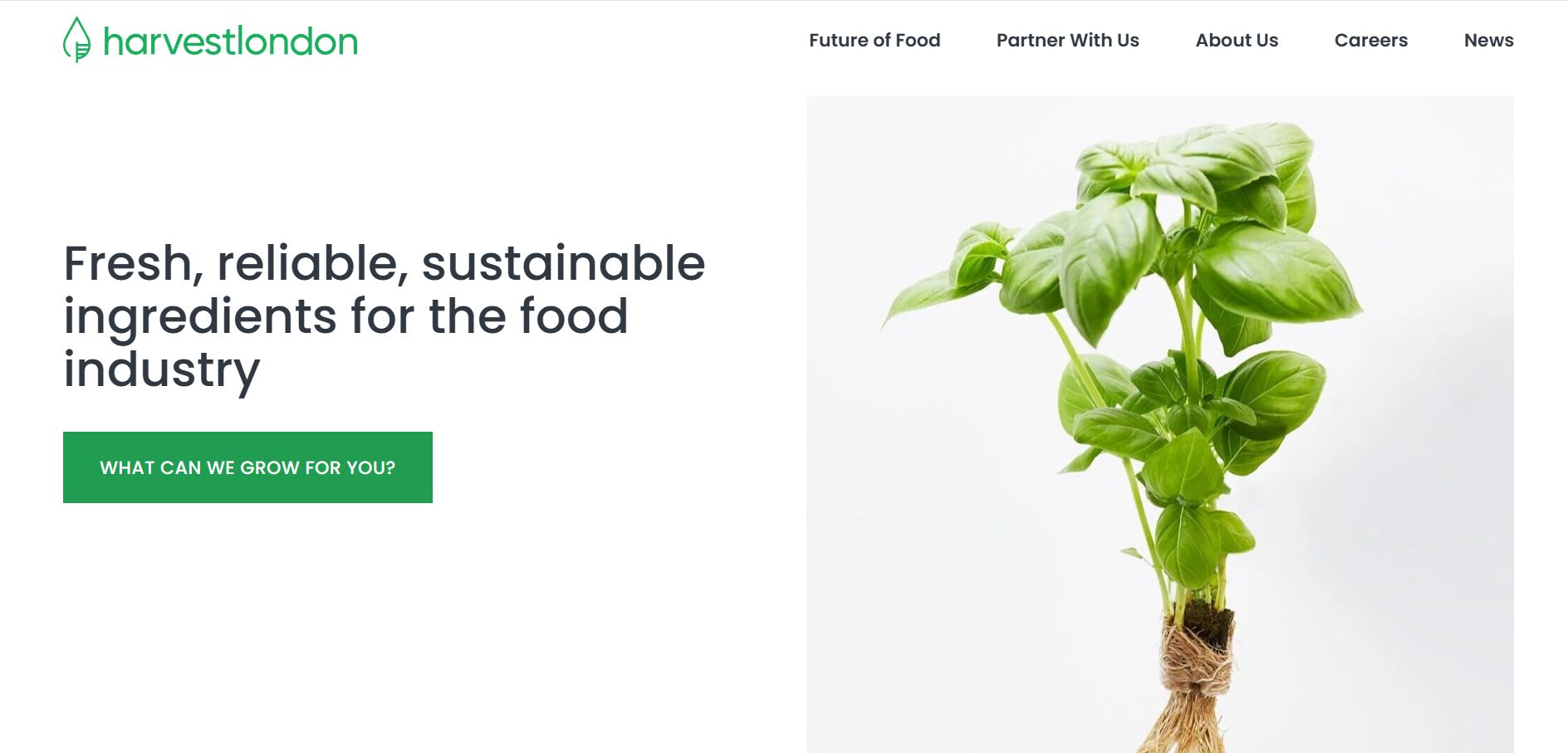
Harvest London brings the farm indoors with its state-of-the-art vertical farming systems. Crops are grown in stacked layers under optimised LED lighting, enabling consistent production year-round. The company’s carbon-conscious operations use renewable energy and zero pesticides. They focus on supplying herbs and leafy greens to foodservice providers, including Michelin-starred restaurants.
With precision-controlled environments, their produce is flavour-packed and nutrient-dense. Harvest London’s mission goes beyond yield it’s about creating a better food system from the inside out. They are currently expanding their footprint with larger facilities powered by green tech and artificial intelligence.
Field of Strength
Vertical farming with energy-efficient lighting and automation.
Best Suited For
Restaurants and caterers demanding consistency and quality.
Pricing: Custom pricing for B2B clients.
- Website: www.harvest.london
- Address: Unit 1, Transform House, 16 Wellington Rd, London E10 7QF, UK
- Email: Info@harvestfarms.ag
Review: ★★★★★
“Best basil I’ve ever tasted. Every delivery is like clockwork and top quality.”
2. Cultivate London – “Growing Futures, Not Just Food”
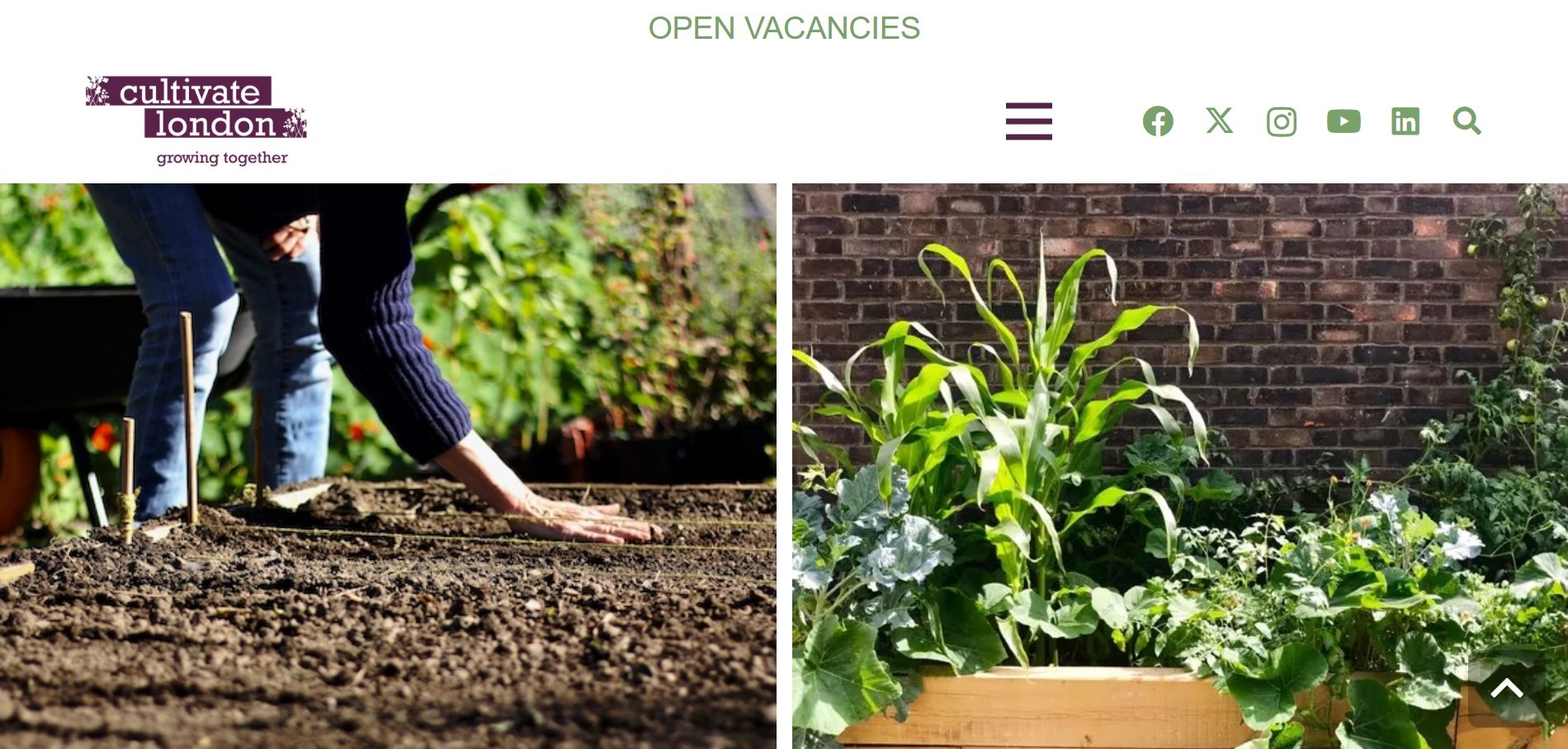
Cultivate London is a non-profit urban farm and social enterprise, empowering young people through sustainable farming. Based in multiple locations across West London, the organisation offers employment training, apprenticeships, and community growing spaces.
Their produce is grown organically, with a focus on biodiversity and local engagement. Cultivate London runs pop-up markets, school garden projects, and has collaborated with housing associations to build food-secure communities. Their mission combines food justice with urban regeneration. The social impact is as important as the harvest, making them a valuable player in London’s sustainable food network.
Niche
Community-based farming with a youth employment focus.
Best Fit
Education projects, social initiatives, and community food schemes.
Pricing: Donations and project-based funding; products available at local markets.
- Website: www.cultivatelondon.org
- Phone: +44 (0)208 992 4941
- Address: 18 Green Dragon Lane, Brentford TW8 0BP
- Email: admin@cultivatelondon.org
Review: ★★★★☆
“Love what they stand for food with purpose and people at the heart.”
3. Sutton Community Farm – “A Farm Owned by the People, for the People”
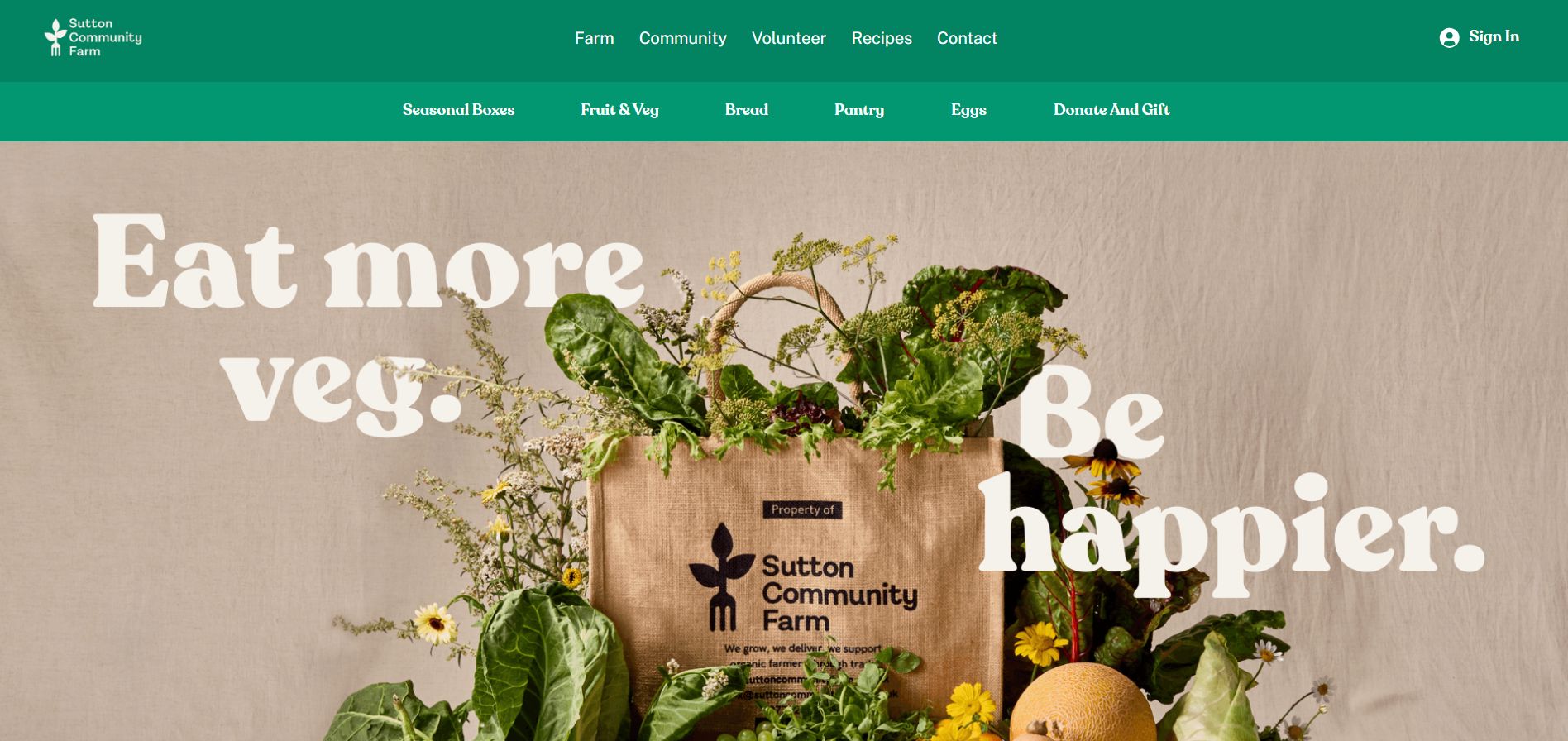
Sutton Community Farm is a grassroots, community-owned food producer in South London. Established in 2010, it grows a wide variety of seasonal vegetables without synthetic chemicals.
Their most popular service is the VegBox scheme, delivering locally grown produce to households each week. Run by a small staff and a large volunteer base, the farm emphasises transparency, community ownership, and sustainability.
Education and wellbeing are central, with regular open days and workshops. Their produce supports a circular economy and shortens the supply chain. It’s farming that feeds both people and purpose.
Primary Edge
Cooperative farming with a focus on seasonal, chemical-free crops.
Perfect For
Londoners seeking local, traceable and community-grown food.
Pricing: VegBoxes from £10.95/week.
- Website: www.suttoncommunityfarm.org.uk
- Phone: +44 07722 156097
- Address: 40a Telegraph Track, Wallington SM6 0SH
- Email: vegbox@suttoncommunityfarm.org.uk
Review: ★★★★★
“The freshness is unbeatable, and knowing it’s grown locally just feels right.”
4. Keats Organic – “Organic from the Ground Up”
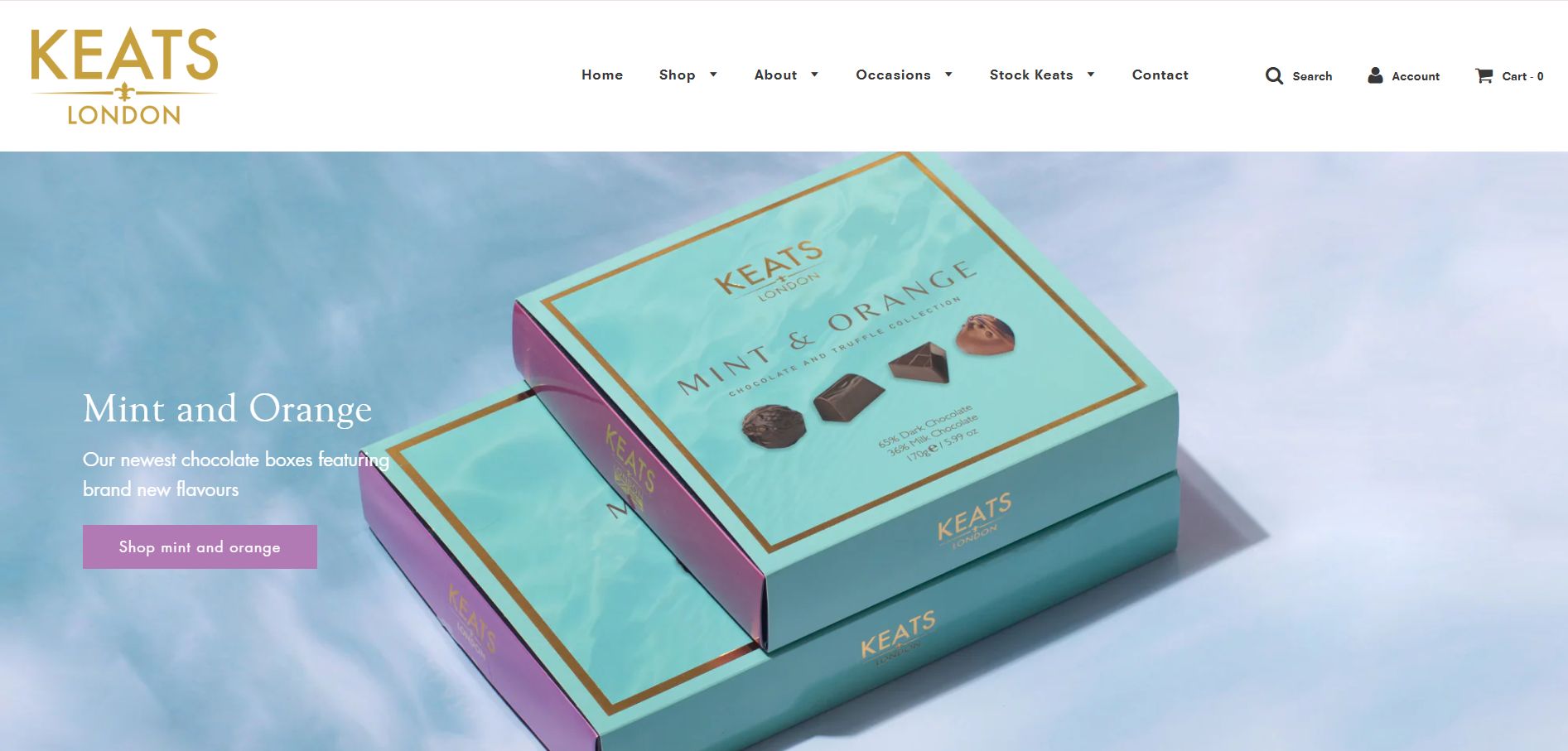
Keats Organic is a traditional-style organic farm shop operating in North London. With Soil Association certification, they ensure that every item meets the highest organic standards. They grow a wide variety of herbs, salad greens, and root vegetables, all free from artificial fertilisers and pesticides.
Customers can shop in person or subscribe to a seasonal produce box. Their reputation is built on consistency and transparency, with strong ties to London’s organic farming movement. Keats Organic is a haven for health-conscious shoppers who value food purity and local sourcing.
Strength Zone
Certified organic production rooted in traditional farming practices.
Ideal Choice
Shoppers looking for trusted organic produce grown in London.
Pricing: Veg Boxes start at £12.50/week.
- Website: www.keatsorganics.co.uk
- Phone: +44 20 3239 4088
- Address: 10 Keats Grove, London NW3 2RR, United Kingdom
- Email: info@keatschocolatier.co.uk
Review: ★★★★☆
“Everything is so fresh and clean. The carrots actually taste like carrots!”
5. Vertical Future – “Tech-Powered Farms for a Sustainable Tomorrow”
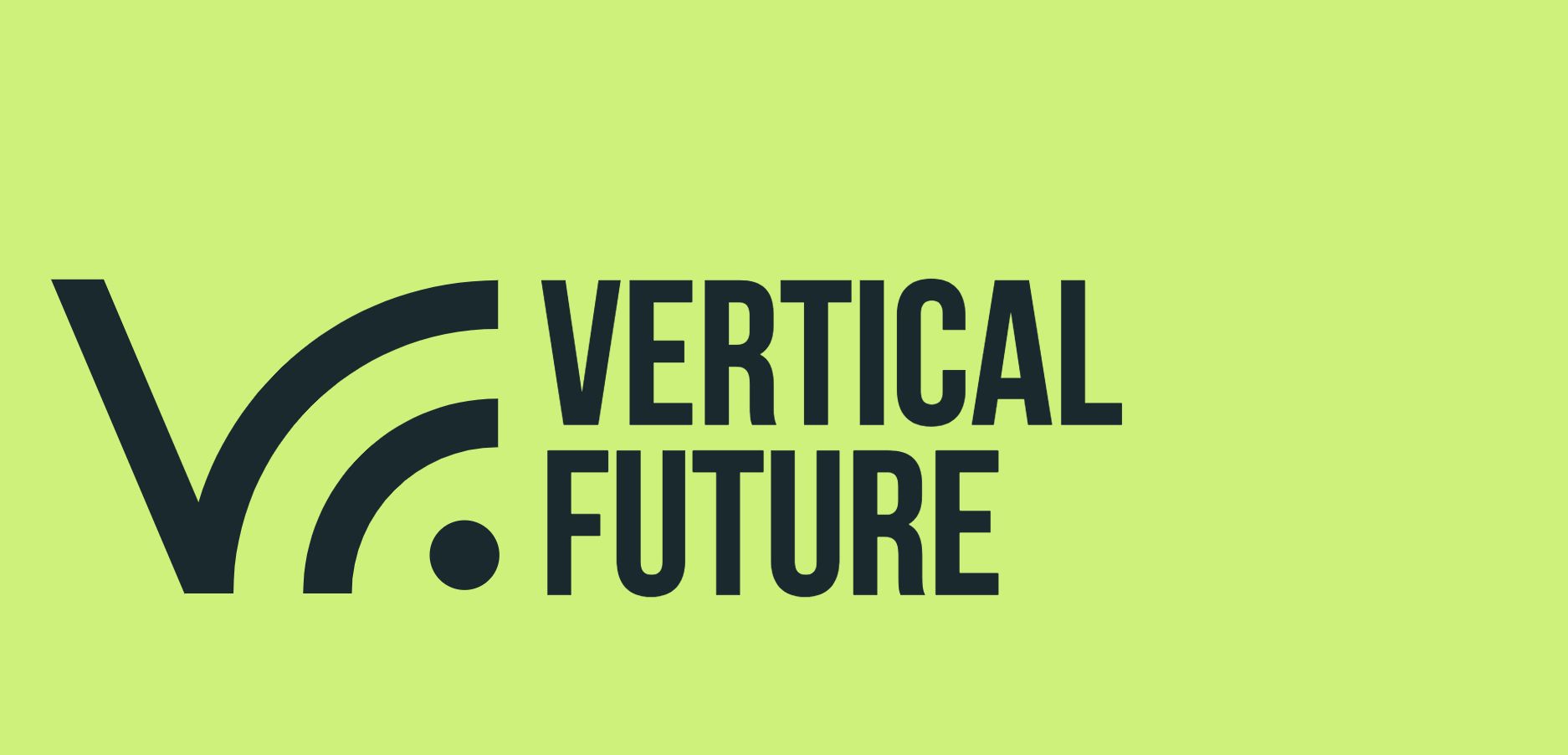
Vertical Future isn’t a farm in the traditional sense. it’s an agritech company building and managing high-performance vertical farming systems. Their proprietary platforms integrate sensors, software, and automation to grow crops efficiently in urban spaces.
The company supports clients in scaling sustainable food production using minimal space and energy. From commercial kitchens to pharmaceutical-grade growing environments, they tailor systems for a range of industries. Vertical Future is leading the charge toward data-driven, decentralised farming in London and beyond.
Special Focus
Agritech development with fully integrated farm automation systems.
Best Target
Enterprises seeking scalable, high-tech farming infrastructure.
Pricing: Project-based pricing; custom quotes available.
- Website: www.verticalfuture.com
- Phone: +44 20 8050 5762
- Address: 7-9 Tunstall Road, London SW9 8BN
- Email: info@verticalfuture.co.uk
Review: ★★★★★
“These systems are the future of urban food. Incredibly smart and scalable.”
6. City Harvest London – “Feeding People, Not Landfill”
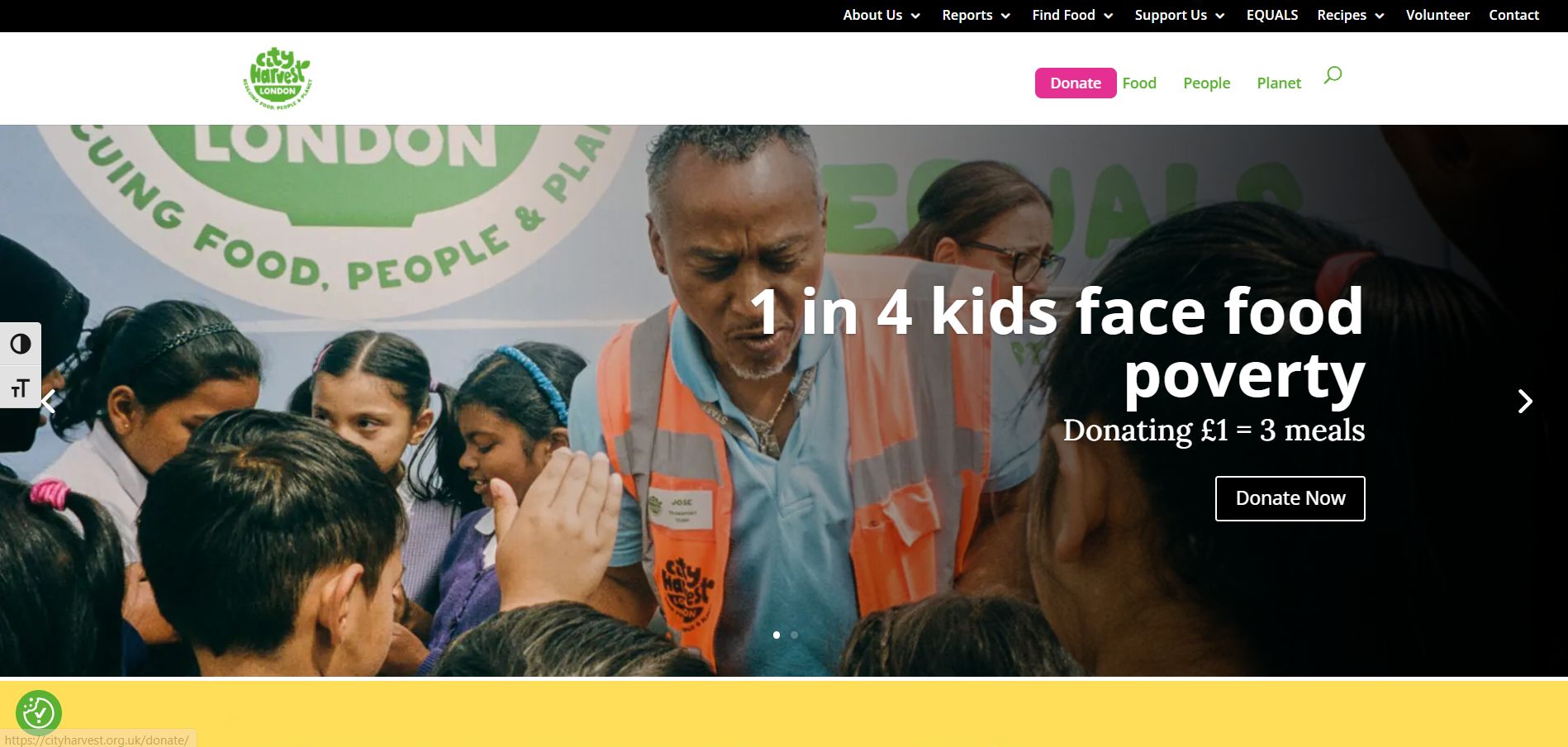
City Harvest is a remarkable charity that tackles two issues simultaneously: food waste and food poverty. While it doesn’t produce food, it plays an essential role in the urban farming and food ecosystem by rescuing surplus fresh produce from farms, food businesses, and wholesalers.
These rescued items are then redistributed to charities, shelters, and community kitchens across London. Since 2014, City Harvest has delivered millions of meals to those in need while diverting tons of food from landfills. The operation is fast, efficient, and guided by sustainability and compassion. Its partnerships with local farming companies ensure that perfectly edible food never goes to waste.
Distinctive Role
Food redistribution from farms to vulnerable communities across London.
Most Suitable For
Farms, grocers, or hospitality venues with surplus produce to donate.
Pricing: Free service donation-based charity model.
- Website: https://cityharvest.org.uk/
- Phone: +44 (0) 207 041 8491
- Address: Unit 8, Acton Park Industrial Estate, London, W3 7QE
- Email: info@cityharvest.org.uk
Review: ★★★★★
“The work they do is inspiring. A true backbone of London’s food community.”
7. London Grown – “Farming with Purpose and Principles”
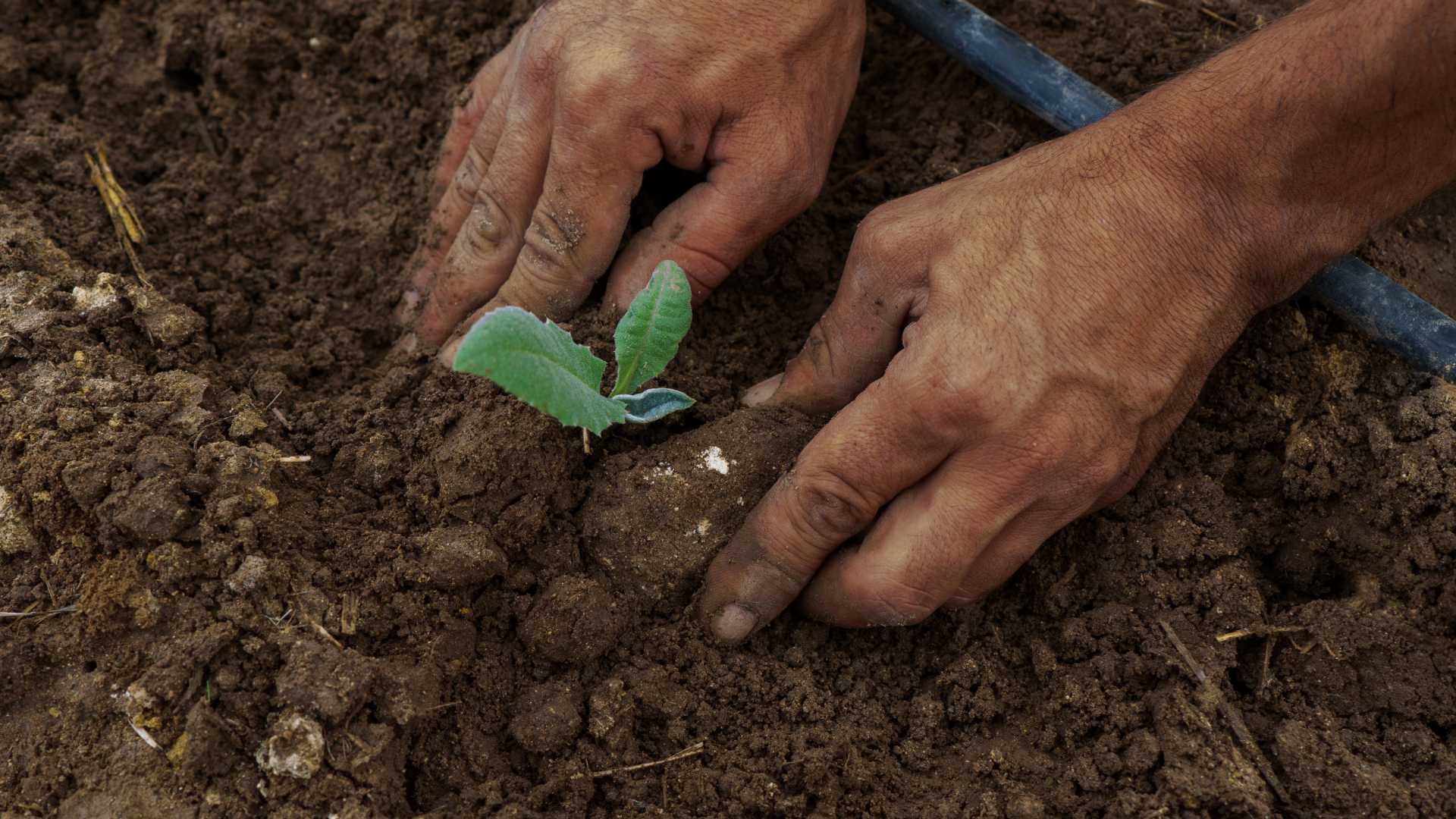
London Grown is a worker-led cooperative farming project based in North London. Established to champion agroecological farming practices, they grow a mix of vegetables, herbs, and flowers on reclaimed land, prioritising soil health and ecological diversity.
Their model is democratic and anti-commercial by design, focusing on community wellbeing rather than mass production. London Grown supplies local buyers, markets, and community events, often reinvesting profits into education and outreach. As a cooperative, every member has a voice, and decisions are made collectively setting them apart in both values and structure.
Core Competency
Cooperative farming with an agroecological and ethical foundation.
Best Matched To
Buyers and organisations aligned with sustainability and social justice.
Pricing: Seasonal produce boxes; prices vary per crop cycle.
- Website: www.londongrown.org
- Phone: +44 7784 946798
- Address: Queensland Ave, London N18 1AT
- Email: londongrown@gmail.com
Review: ★★★★☆
“Beautiful food, powerful mission. You can taste the care in every bite.”
8. Bioaqua Farm – “Nature’s Cycle, Perfected”
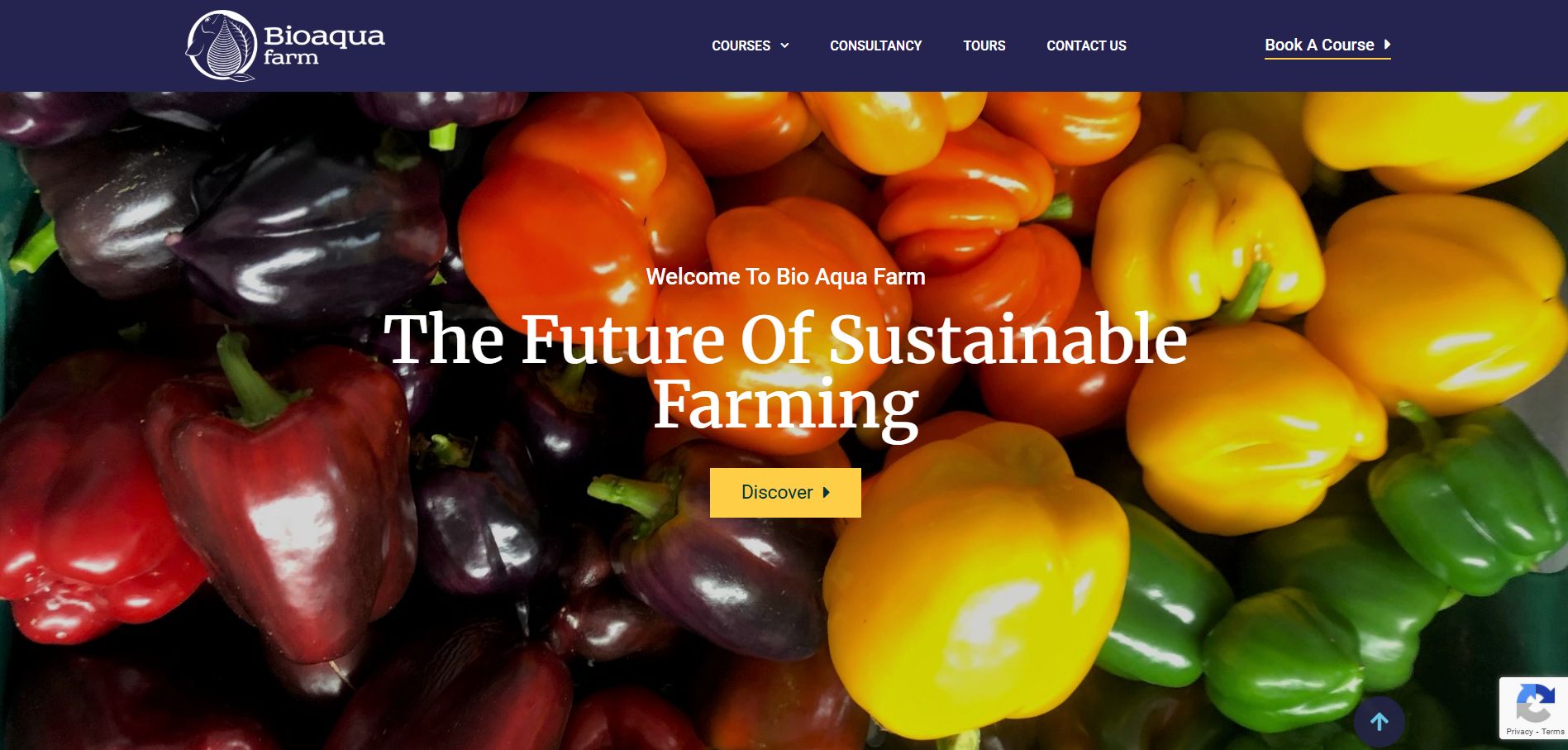
Just outside the London border, Bioaqua Farm pioneers aquaponics a closed-loop system combining fish farming with crop cultivation. Nutrient-rich water from the fish tanks feeds the plants, and the plants purify the water in return, creating a near-zero-waste growing environment. Bioaqua produces high-value crops like watercress, herbs, and salad greens, alongside tilapia fish.
Their model showcases sustainability in action, and they provide tours, consultancy, and training for individuals and organisations interested in sustainable farming systems. With a strong focus on regenerative practices, Bioaqua Farm is a leader in future-proof farming.
Primary Feature
Aquaponics systems that blend aquatic life with plant-based agriculture.
Most Recommended For
Eco-conscious consumers and farms exploring closed-loop food systems.
Pricing: Products and training prices available upon request.
- Website: www.bioaqua.farm
- Phone: 07960549688
- Address: Somerset, UK. BS28 4PA
- Email: info@bioaquafarm.co.uk
Review: ★★★★☆
“A truly impressive model of zero-waste food production educational and inspiring.”
9. Microgreens London – “The Smallest Crops with the Biggest Nutrition”
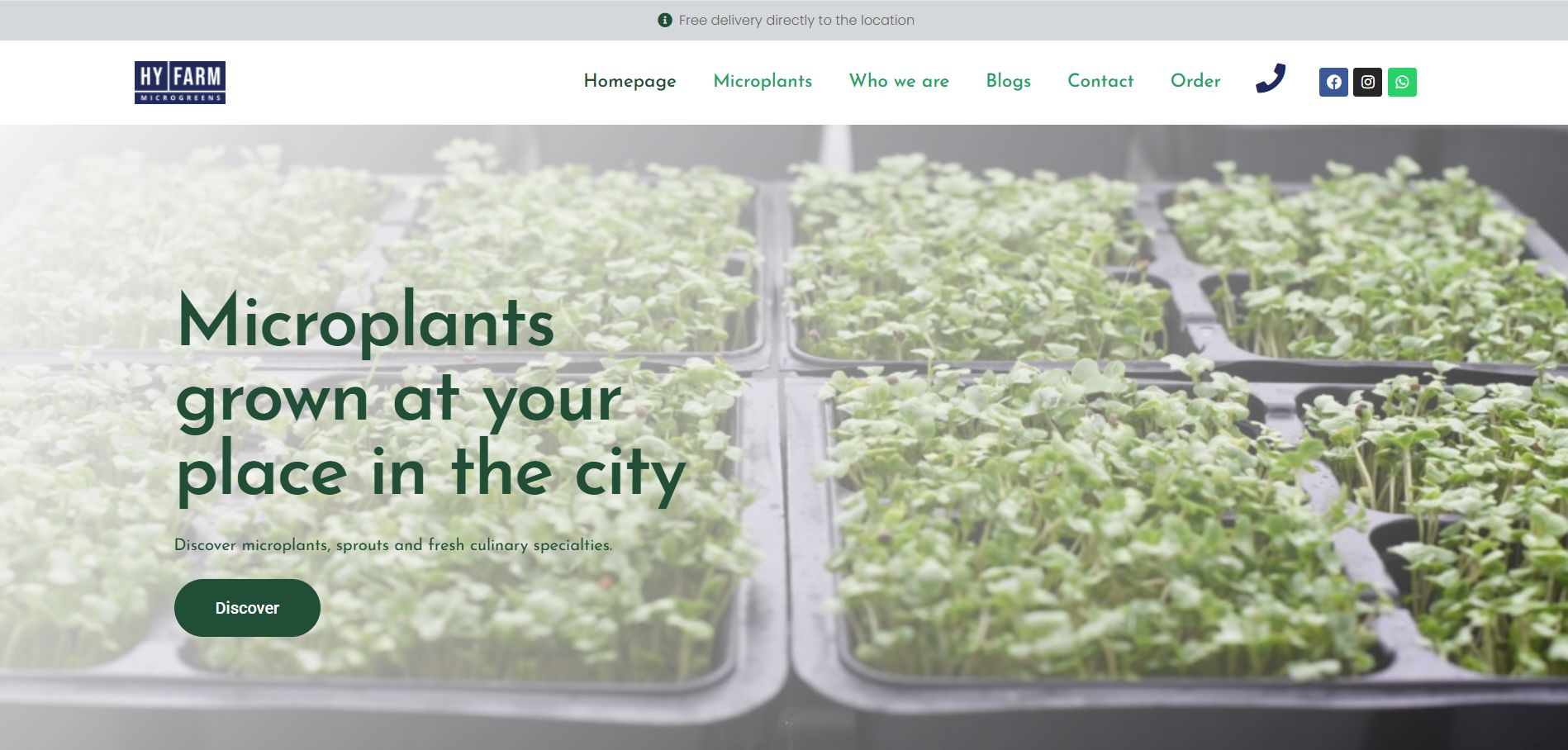
Microgreens London specialises in growing young, nutrient-dense greens that are harvested just days after germination. These tiny powerhouses are popular in upscale restaurants and health-conscious homes, thanks to their intense flavour and high vitamin content.
Operating from a compact urban setup, they use vertical growing racks and LED lighting to deliver fresh microgreens year-round. The business focuses on pea shoots, radish, sunflower, and broccoli microgreens, offering both retail and wholesale delivery. With an emphasis on freshness, all greens are harvested to order and delivered within 24 hours a favourite among chefs and food stylists.
Notable Strength
Micro-scale vertical farming focused on high-nutrition edible plants.
Well-Suited For
Chefs, nutritionists, and consumers looking for fast, fresh superfoods.
Pricing: From £3.50 per 100g tray; wholesale rates available.
- Website: www.microgreens.london
- Phone: +447587953293
- Address: 9 Address: 61 Fulwich Road, London SW6 (delivery only)
- Email: info@microgreens-london.com
Review: ★★★★★
“These microgreens are like flavour bombs. Packed, fresh, and full of colour.”
10. Edible London – “Growing Food, Growing Communities”
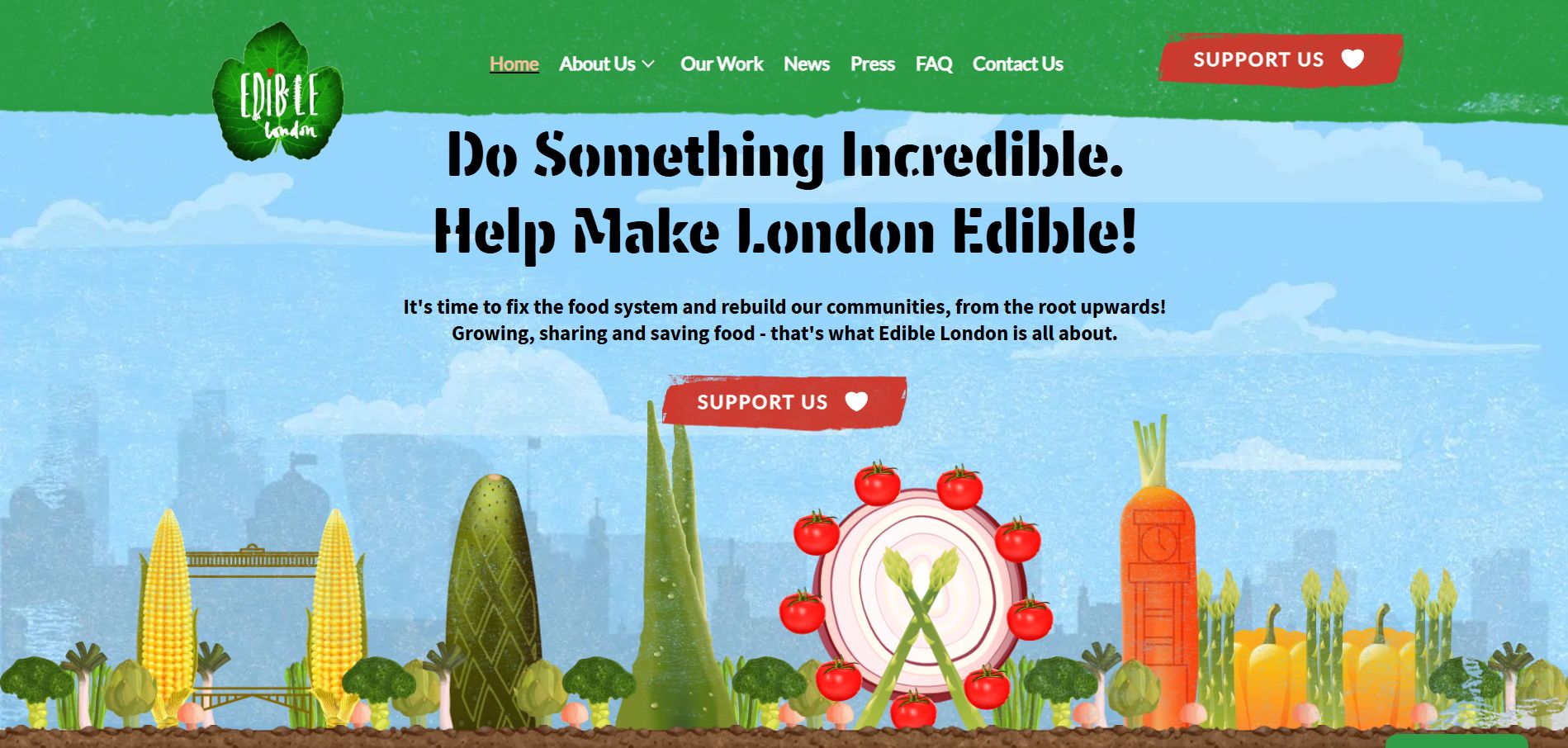
Edible London is a community-driven urban farming and food security organisation based in North London. Their mission is to empower local communities by growing organic fruits, vegetables, and herbs on underutilised land including parks, rooftops, and disused council spaces.
Founded in 2018, they not only grow food but also distribute thousands of kilos of surplus produce to those in need, promoting food equality and education.
The organisation works in collaboration with Haringey Council and multiple social partners to tackle food insecurity while reducing environmental impact. Their combination of sustainable farming and social outreach makes them a cornerstone of ethical urban agriculture in London.
Key Strength
Community-powered sustainable farming combined with surplus food distribution.
Best Choice For
Charities, councils, and conscious consumers supporting food justice and education.
Pricing: Food is distributed via community channels; donations welcome.
- Website: www.ediblelondon.org
- Address:
- Email: info@ediblelondon.org
Review: ★★★★☆
“Incredible initiative. They’re growing food and hope right in the heart of London.”
Why Is Urban Agriculture on the Rise in London?
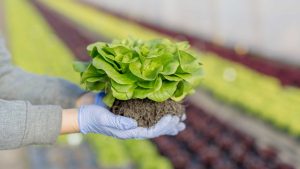
There are several reasons why urban agriculture is gaining traction in London. Firstly, the demand for local, fresh food has never been higher, especially among health-conscious consumers. As people become more aware of the environmental impact of imported goods, they seek out produce grown closer to home.
Secondly, technology has removed many of the traditional barriers to farming in cities. Innovations in vertical farming, LED lighting, and smart irrigation systems mean that crops can be grown efficiently indoors or in unconventional spaces. Finally, policy support from local authorities and interest in green jobs have made urban agriculture a more viable and attractive business model.
What Are the Most In-Demand Farming Services Offered in London?
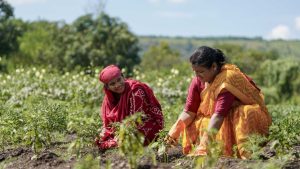
While traditional farming focused on crop production, modern London-based farming companies offer a broad range of services. These include designing and installing vertical farms for commercial kitchens or retailers, managing rooftop gardens, and offering consulting services for sustainable food systems.
There’s also a growing interest in farm-to-door delivery services, with customers subscribing to weekly boxes of locally grown produce. Educational workshops, school partnerships, and corporate sustainability training are also part of the portfolio for many companies, turning them into hubs of knowledge and community interaction rather than just food providers.
How Do These Companies Contribute to London’s Local Food Ecosystem?
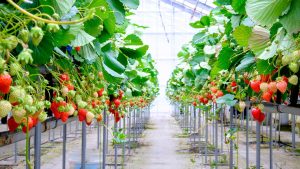
Urban farming companies are integral to London’s food ecosystem. By producing food closer to where it is consumed, they reduce the need for long-distance transportation and cut down on associated carbon emissions. They also play a critical role in improving access to fresh produce in areas that might otherwise rely on processed or imported foods.
Beyond logistics, these businesses strengthen the local economy. They support small-scale producers, employ local workers, and keep money circulating within the community. Initiatives such as community-supported agriculture (CSA) schemes or partnerships with local food banks further underline their social value. In short, they are helping to build a more resilient, equitable food system in the capital.
Is Agritech Reshaping the Farming Industry in the Capital?
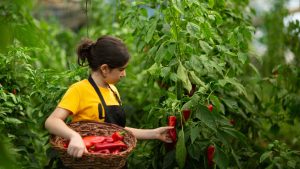
The influence of agritech on London’s farming sector cannot be overstated. From AI-powered crop monitoring systems to blockchain tracked food provenance, technology is transforming how urban farms operate. Companies like Vertical Future are at the forefront, offering scalable systems that automate everything from nutrient distribution to harvest timing.
Smart greenhouses now maintain precise climate conditions, allowing farmers to grow crops that would otherwise be unsuitable for the UK climate. Real-time data collection enables constant optimisation of resources, which is crucial for small urban farms operating on tight margins. Agritech isn’t just enhancing productivity. it’s enabling the very existence of farms in the urban core.
Quick Comparison of Top 10 Farming Companies in London
| Company Name | Specialisation | Location | Notable Feature | Website (if available) |
| Growing Underground | Hydroponic farming | Clapham | Farming in tunnels | growingunderground.com |
| Harvest London | Vertical farming | East London | LED-light crop systems | harvest.london |
| Farmdrop | Local food delivery | N/A (Closed) | Supported independent farms | (Service discontinued) |
| Cultivate London | Social enterprise farm | West London | Youth training and urban farming | cultivate.london |
| Sutton Community Farm | Community-owned farm | South London | Volunteer-based produce | suttoncommunityfarm.org.uk |
| Keats Organic | Organic supplier | North London | Certified organic produce | keatsorganics.co.uk |
| Vertical Future | Agritech systems | South London | Automated vertical farming | verticalfuture.com |
| City Harvest London | Food redistribution | Acton | Connects surplus food to charities | cityharvest.org.uk |
| London Grown | Cooperative farming | North London | Agroecological principles | londongrown.org |
| Bioaqua Farm | Aquaponics farm | Outer London | Closed-loop farming system | bioaquafarm.co.uk |
Conclusion
The future of farming in London is smart, sustainable, and community-focused. As more consumers demand food that is ethically sourced and environmentally friendly, farming companies in the capital are rising to meet those expectations. Whether through underground hydroponics, rooftop greenhouses, or social farming projects, these businesses are redefining what it means to grow food in a 21st-century city.
With continued investment in agritech and public awareness around food sustainability, London’s farming sector is poised not just to survive but to lead. Supporting these companies means supporting a cleaner, healthier, and more resilient urban food future.
FAQs About Farming Companies in London
What types of farming are most common in London today?
Hydroponics, aquaponics, vertical farming, and community-supported agriculture dominate the urban landscape, allowing food to be grown in limited or indoor spaces.
How do urban farming companies operate within city limits?
They use innovative setups such as underground tunnels, rooftops, or converted warehouses, often relying on artificial lighting and nutrient circulation systems.
What are the benefits of sourcing from local farms in London?
Consumers enjoy fresher, tastier produce with a lower environmental impact, while supporting local economies and reducing reliance on imports.
Are farming companies in London regulated differently?
They follow national farming regulations but often face stricter urban planning rules and environmental standards due to their city-centre operations.
How do I choose the best farm service provider in London?
Look for transparency, sustainability certifications, community involvement, and a clear track record of customer satisfaction.
What is the future of hydroponic farming in London?
Hydroponics is expected to expand rapidly due to its efficiency and ability to operate indoors year-round, with minimal environmental footprint.
Are there government grants for farming businesses in the UK?
Yes, there are various schemes supporting sustainable agriculture, innovation, and urban farming through DEFRA and local councils.
